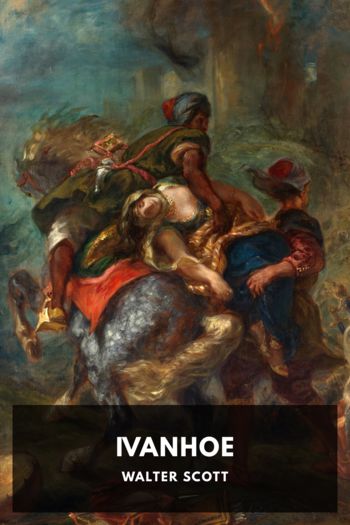The Nibelungenlied - - (english love story books .txt) 📗

- Author: -
Book online «The Nibelungenlied - - (english love story books .txt) 📗». Author -
Translated by Alice Horton.
Table of Contents Titlepage Imprint Editor’s Preface The Nibelungenlied Adventure I: Kriemhilda Adventure II: Siegfried Adventure III: How Siegfried Came to Worms Adventure IV: How Siegfried Fought the Saxons Adventure V: How Siegfried First Saw Kriemhilda Adventure VI: How Gunther Went to Iceland After Brunhilda Adventure VII: How Gunther Won Brunhilda Adventure VIII: How Siegfried Went to Fetch the Nibelungs Adventure IX: How Siegfried Was Sent to Worms Adventure X: How Brunhilda Was Received at Worms Adventure XI: How Siegfried Went Home with His Wife Adventure XII: How Gunther Bade Siegfried to the Festival Adventure XIII: How They Journeyed to the Festival Adventure XIV: How the Queens Railed at One Another Adventure XV: How Siegfried Was Betrayed Adventure XVI: How Siegfried Was Slain Adventure XVII: How Kriemhilda Mourn’d for Her Husband, and How He Was Buried Adventure XVIII: How Siegmund Went Back to His Own Land Adventure XIX: How the Nibelung Hoard Was Brought to Worms Adventure XX: How King Etzel Sent to Burgundy After Kriemhilda Adventure XXI: How Kriemhilda Went to the Huns Adventure XXII: How Etzel Espoused Kriemhilda Adventure XXIII: How Kriemhilda Thought to Avenge Her Injury Adventure XXIV: How Werbel and Schwemmel Did Their Errand Adventure XXV: How the Lords All Went to the Huns Adventure XXVI: How Gelfrat Was Slain by Dankwart Adventure XXVII: How They Came to Bechelaren Adventure XXVIII: How the Burgundians Came to Etzel’s Stronghold Adventure XXIX: How He Stood Not Up Before Her Adventure XXX: How They Kept Watch and Ward Adventure XXXI: How They Went to Church Adventure XXXII: How Bloedelin Was Slain Adventure XXXIII: How the Burgundians Fought with the Huns Adventure XXXIV: How They Cast Forth the Dead Adventure XXXV: How Iring Was Slain Adventure XXXVI: How the Queen Bade That the Hall Be Set on Fire Adventure XXXVII: How the Margrave Rüdeger Was Slain Adventure XXXVIII: How Lord Dietrich’s Warriors All Were Slain Adventure XXXIX: How Gunther and Hagen and Kriemhilda Were Slain Endnotes Colophon Uncopyright ImprintThis ebook is the product of many hours of hard work by volunteers for Standard Ebooks, and builds on the hard work of other literature lovers made possible by the public domain.
This particular ebook is based on digital scans available at the Internet Archive.
The writing and artwork within are believed to be in the U.S. public domain, and Standard Ebooks releases this ebook edition under the terms in the CC0 1.0 Universal Public Domain Dedication. For full license information, see the Uncopyright at the end of this ebook.
Standard Ebooks is a volunteer-driven project that produces ebook editions of public domain literature using modern typography, technology, and editorial standards, and distributes them free of cost. You can download this and other ebooks carefully produced for true book lovers at standardebooks.org.
Editor’s PrefaceThe following addition to the existing translations of the Nibelungenlied originated in the desire to place before English readers a rendering which should be at once literal and metrical. Of five which have appeared during the past fifty years not one quite accomplishes this object. Three only are in verse. The first, by Jonathan Birch, which appeared in 1848, was rendered in iambics of seven feet, from the short and to some extent hypothetical text of Lachmann. The second, by W. N. Lettsom, is a spirited performance, but it takes many liberties with the language and fails to preserve the antique flavour of the work. The third, by Mr. A. G. Foster-Barham, which appeared only ten years ago, is much more satisfactory in this respect, and errs chiefly in retaining too great a roughness of rhythm, which makes it displeasing to the modern ear. Of the two prose translations, the first, entitled Echoes from Mistland (Chicago, 1877), by Mr. Auber Forestier, is rather a paraphrase than a literal rendering, though it adheres closely to the matter of the original; and the second, by Miss Armour, which has only lately appeared, seems in all respects a praiseworthy production, lacking only a metrical form to make it a fair equivalent of the great German epic.
The additional difficulties involved in any verse-translation are so great, that a translator may well be excused from facing them. Assuming the indispensable qualification of sympathy needful in the translation of any work of art from one medium to another, the differences in word-formation, in inflection, and in grammatical construction between any two languages interpose mechanical obstacles which are inconsistent with the preservation of metrical similarity; a more or less close approximation is all that can be looked for. Still more are the difficulties increased when the task involves the presentation to a modern reader of a work which belongs to a distant and nebulous past, deals with a primitive and imperfect phase of human culture, and teems with motives which, if not eradicated from human nature, are no longer regarded as legitimate and are often repugnant to modern ideas. In these circumstances it might be thought that a prose rendering would have the best or only chance of doing justice to the original. But, on the other hand, it may be urged that a prose translation of a rhymed poem can never be an adequate equivalent, especially in a work like the Nibelungenlied, where it must be obvious to any student that its construction in rhyme and strophe have played an important part in determining its style and character. Rhyme and rhythm are essential features of it; and the modern reader (as distinguished from the student) requires, no less than the medieval listener, the stimulus which they supply. To give for 9,000 lines





Comments (0)